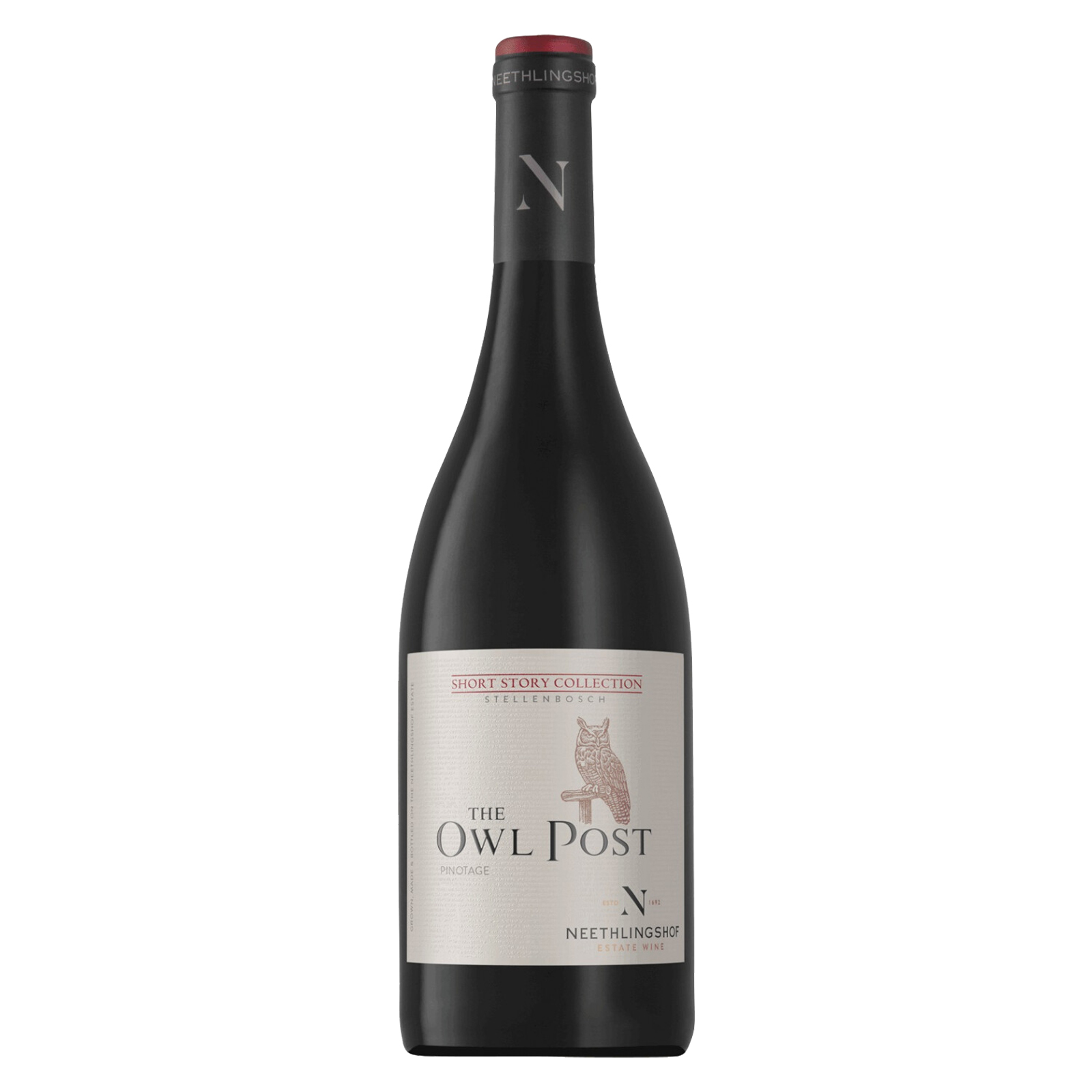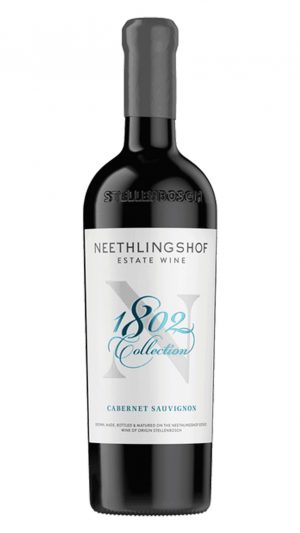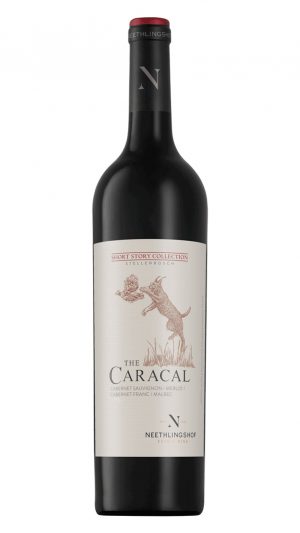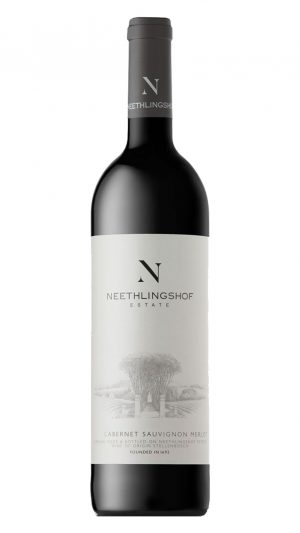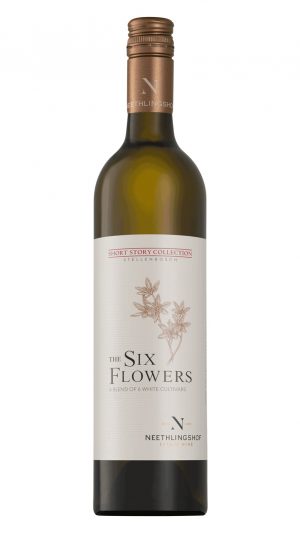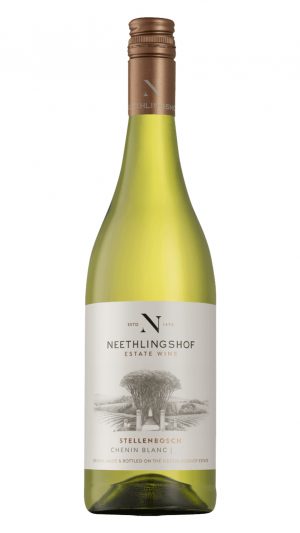Neethlingshof Owl Post 2019
Type: Red
Country: South Africa
Region: Stellenbosch
Grape Variety: 100% Pinotage
Climate: The locality of Neethlingshof enables cool sea breezes from both the Indian and Atlantic oceans to penetrate the vineyards and cool down the grapes during hot summer days
Terroir: The grapes for Neethlingshof Owl Post Pinotage are sourced from dryland vines established in deep red soils that are rich in organic material and amply feed the roots. Planted in 1997, the vines are established on north-westerly-facing slopes, 120m above sea level, in soils originating from decomposed granite
Winemaking: After destalking and crushing, yeast was added to the mash and fermentation commenced in stainless steel tanks. While the juice was still fermenting, it was transferred to 300-litre oak barrels (60% Hungarian and 40% French) where it completed fermentation. Malolactic fermentation took place in the same barrels. The wine was matured in the oak barrels for a period of 12 months
Color: Deep, red ruby
Nose: Aromas of ripe red apple, blackcurrant, toasted coconut, candied red cherry with elements of black forest cake and sweet baking spices
Palate: Full savoury mouthfeel with flavours of stewed fruits, prunes, dark chocolate and elements of tobacco and charred wood with a velvet-like finish
About the Winery:
In the heart of the Cape wine region, you will find Neethlingshof Estate, one of the oldest wine estates in South Africa. Wines have been produced here since 1692. Originally founded by a German immigrant named Willem Barend Lubbe, it now produces high-quality wines from the Western Cape. Since 2003, they have also been pursuing an active biodiversity strategy to limit the monoculture of wine.
The estate grows many different grape varieties, including well-known ones such as Cabernet Sauvignon, Merlot, Chardonnay or Chenin Blanc, but also the Pinotage, Gewürztraminer or Riesling typical of South Africa.
With their south and southwest exposure, the plants soak up plenty of sun during the day, while being cooled by cold sea air at night. The growth process is thus rather slow, which gives the grapes a ripe aroma.

